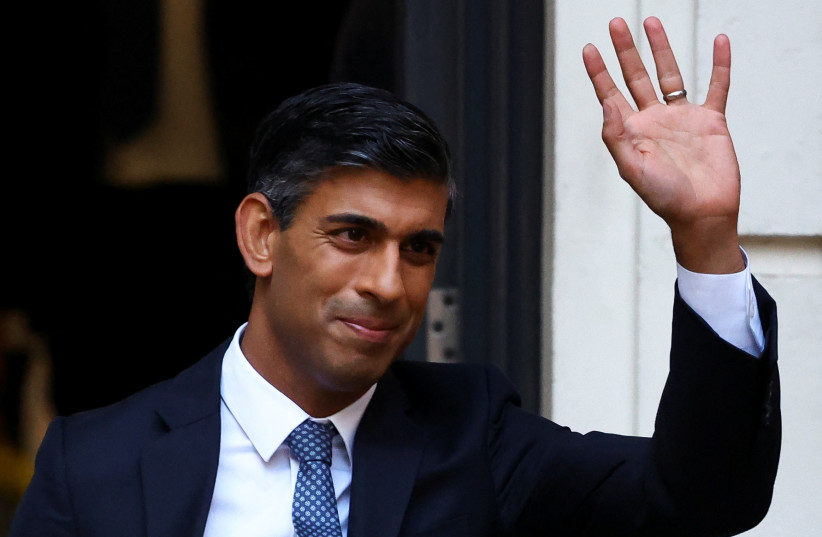Currently, few would bet against Britain turning to Labour on the Fourth of July. That would mean that after 27 years, the upcoming elections in the UK have the potential to reenact the Labour win over the Conservative party, leading to a new – yet maybe less exciting – era in the political landscape of the UK.
While perhaps overshadowed by the EU elections, the Emmanuel Macron gamble, and the approaching struggle over the White House in Washington, the elections in the United Kingdom are nonetheless dramatic and important, as they may impact not only Britain’s political stance within Europe – possibly serving as a focal point opposing the political trends on the mainland of the continent – but also the UK’s foreign policy toward Israel.
However, it seems that Israelis, both in and out of government, have convinced themselves that what happens in London and its surroundings is of no relevance to them. These sentiments can be evident not only in how little attention is given to the approaching change of government and prime minister in Downing Street but also in the surprisingly low name recognition that both Prime Minister Rishi Sunak and Labour Party leader Keir Starmer enjoy in Israel. It’s an estrangement that is in complete contrast to the deep involvement of the average Israeli in American politics.
It would be wrong for Israelis to avoid the UK
That trend, together with extensive footage of pro-Palestinian marches through the streets of London, which spread like wildfire through social and traditional media, is creating the dangerous possibility that Israelis will decide to ignore and avoid the United Kingdom altogether. That would be utterly wrong.
The relationship between the two countries, of course, had its ups and downs since the founding of Israel and the end of the British Mandate. This complexity, nonetheless, did not prevent the two countries under the current span of Tory governments from having close relations.

The current foreign minister, Lord David Cameron, is famous for his “most pro-Israel PM ever” remark. Sunak, who came on a visit to Jerusalem last October, was quick to announce at the Finchley United Synagogue that “Am Yisrael Chai.” British diplomatic and deterrence efforts are visible in connection to the skirmish on the northern border in Israel and in isolating and punishing Iran, and the Royal Air Force took a substantial part in repelling the Iranian attack on Israel in April.
AT THE SAME time, from the same halls of Westminster, and sometimes even by some of the same individuals mentioned earlier, significant criticism of Israel and its actions in Gaza can be heard loudly. Recent polls show that a ban on selling arms to Israel has a significant base of support in the British public.
At British universities, BDS-like positions have gained new resonance and are on an upward trend. Sympathy for Israel is less for Israel now in comparison to the days immediately after Oct. 7, though not as rare as one might think if you are following the news media. At the very least, there is wide support in Britain for a ceasefire in Gaza.
Such criticism also comes from political figures in the UK, such as the Scottish National Party, which called on Sunak to end arms sales to Israel. And there are reasons to be concerned that demonstrations, as well as voices within the opposition, may force the incoming government to take steps unfavorable to Jerusalem.
What seems like an approaching collapse of the Tories, most likely obliterated from the Left by the Labour and hurt from the Right by Nigel Farage and the Reform UK movement, raises worries in Jerusalem that a possible Starmer government will be less supportive of Israel at a dramatic and challenging moment for Israel.
All that should not lead to a decrease in attention to what is happening in the UK. On a state level, desperation should not be seen as a foreign policy, and the Israeli government should do the best it can to create extensive connections with whatever government is formed, even if it is more critical of Israeli policy.
But it is also advisable that the Israeli public does not forget about Britain during the endless Donald Trump-Joe Biden battles. Israelis should not avoid London, which is unquestionably more inviting for them than it might seem on Twitter. Israeli students, even today, should not skip an opportunity to participate in exchange programs and enroll in British universities, which have a dramatic and out-sized influence on academia, business, and culture in the West.
Most importantly, Israelis should not say or think that Britain does not matter. It does. Connection and attention to the island are of extreme importance today, and yes, that starts from knowing that Starmer is not spelled C-O-R-B-Y-N.
Inbar Noy-Freifeld is a research fellow at the Institute for National Security Studies and a Ph.D. candidate in international relations at The Hebrew University of Jerusalem.
Uri Kidron is a Ph.D. candidate in international relations at The Hebrew University of Jerusalem and a strategic consultant.
